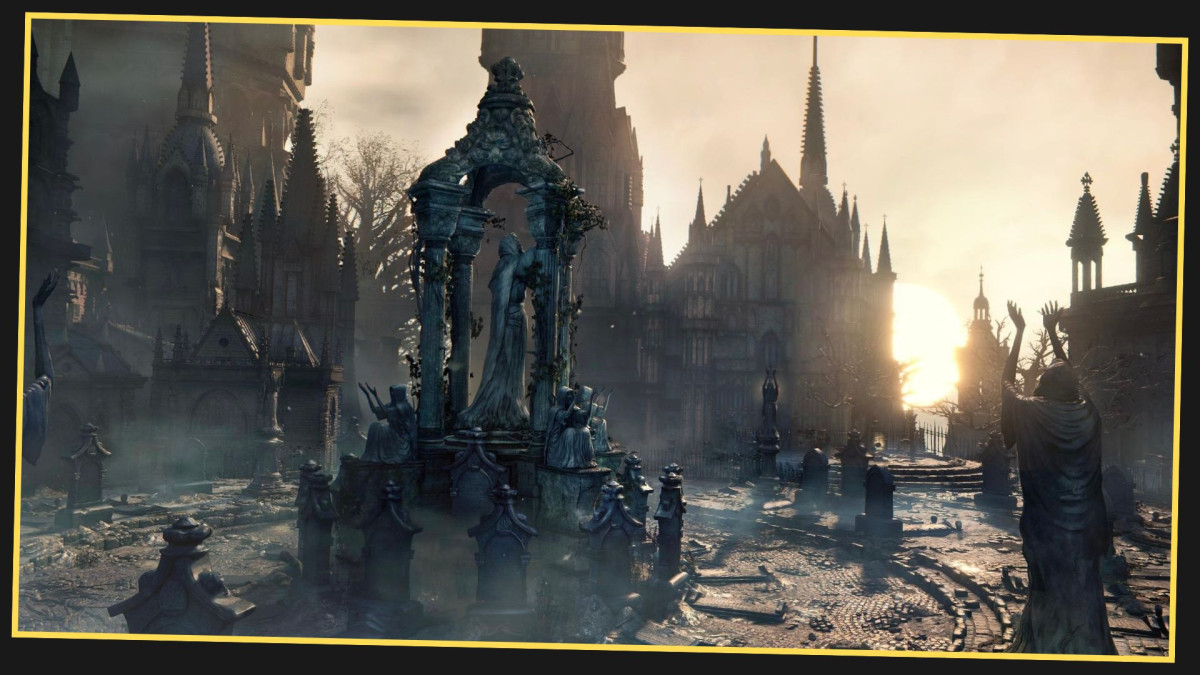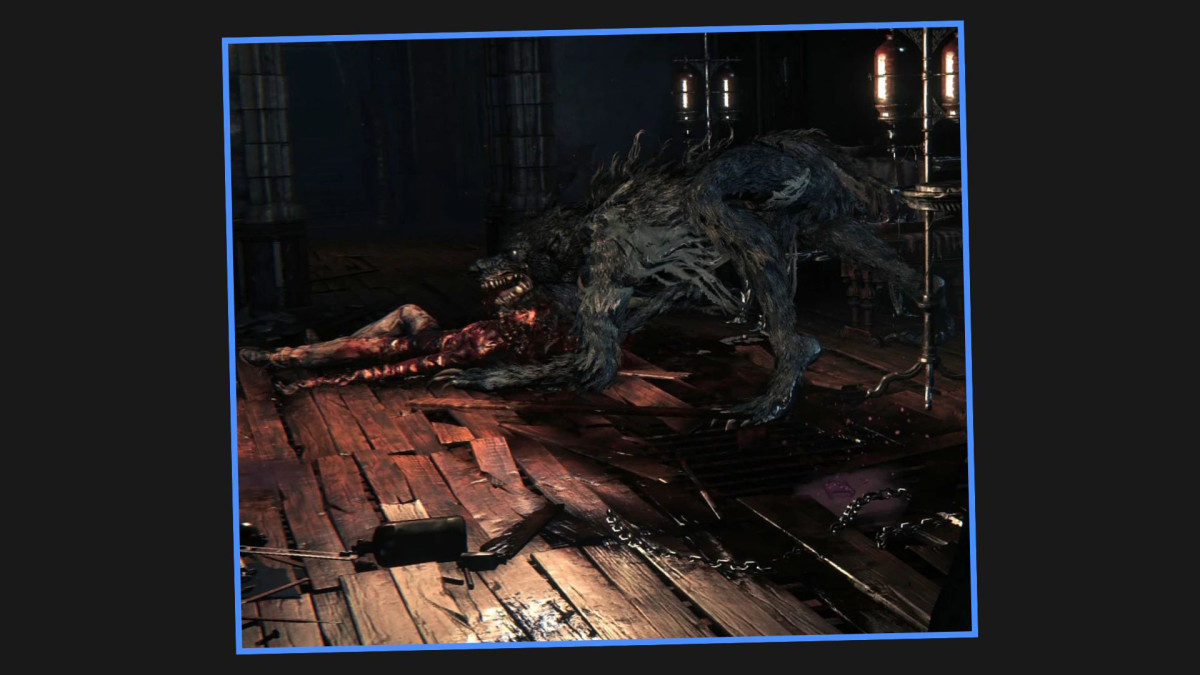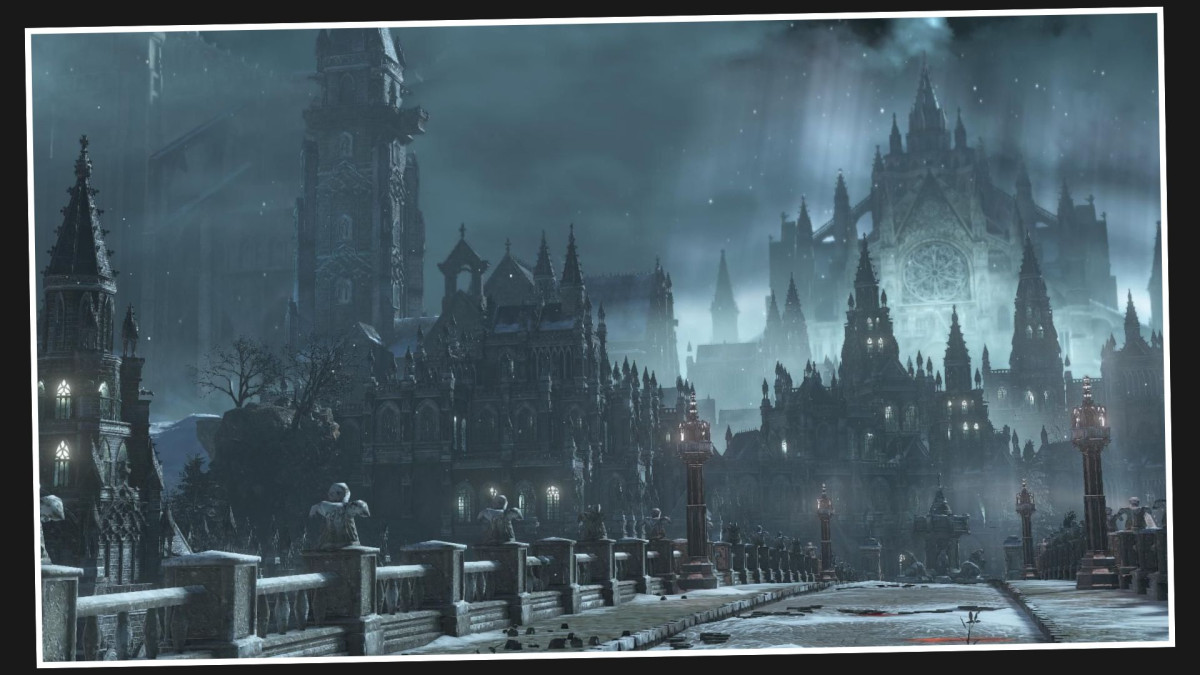Some games hurt. Some games heal. Some do both. Soulslikes are brutal. They break you, push you, and offer no mercy. But somehow, they also give people hope, and in some cases, these games help people keep going. We explored how games have become something more than just games. Read now!
What are soulslike games?
Soulslikes are a subgenre of action RPGs known for their high difficulty, dark atmosphere, and almost complete lack of tutorials or guidance. The gameplay is built around patience and learning through failure.
You’ve probably heard of the most well-known titles like Dark Souls, Bloodborne, Sekiro, and Elden Ring. We’ll take a look at the first two later on. To put it simply, these games are often described as “games about suffering.” And there’s some truth to that. The stories are bleak, the atmosphere is heavy, and happy endings are extremely rare.
But don’t think these games are just about cruelty. They’re not. Their true meaning lies in perseverance. And in this world, it’s not talent that gets rewarded but persistence.
At first glance, the phrase “how soulslike games save lives” sounds like a contradiction. These are not merry games. The worlds they depict are crumbling, decaying—places of rot, despair, and forgotten glory. The genre is notorious for its punishing difficulty, unforgiving mechanics, and narratives where true happy endings are a rarity—if they exist at all, which is not the case for the Ashen One, not for the Hunter, and certainly not for those who cross their path.
And yet, if you browse Reddit or player forums, you’ll come across countless threads and testimonials of people saying things like, “Soulslikes helped me get through my depression.”
Here’s what one Reddit user shared:
“So, I recently started playing DS1 Remastered, and I have played it before but kept losing before fighting the Taurus [Demon]. But this time, I kept pushing on and killed the Taurus [Demon], the Bell Gargoyles, and the Gaping Dragon all by myself after so many attempts.
Sometimes, when I feel depressed, I play this game, and see my [Undead] character keep fighting on with the claymore on her shoulder. [Even] if all hope seems completely lost, she keeps pushing on again and again and manages to defeat the monsters plaguing Lordran. And I feel a little nicer knowing I helped a little in accomplishing that task.”
In the same thread, another user offered a striking insight:
“[A lot] of people argue that this game is a metaphor for depression and overcoming it. I’’ not sure if that’s how it was meant when they made it, but it’s a valid interpretation [a lot] of people have.
This game is about overcoming suffering. It’s something we all must do and learn to become strong at in our own lives.
[Dark Souls] has helped [a lot] of people overcome difficulties in their real lives, myself included. It holds a special place in our hearts.”
What is depression, and how can video games help?
According to the World Health Organization, depression affects around 5% of all adults globally. It’s a serious mental health condition with symptoms that often include apathy, loss of interest in hobbies, and sometimes suicidal ideation. But treatment is possible, and research is increasingly recognizing the therapeutic potential of video games as a supportive tool.
A study from Lero, published in the Journal of Medical Internet Research, found that games can help alleviate symptoms of depression. They offer immersive scenarios and controlled environments that engage the player mentally and emotionally. Not everyone has access to therapy, but games—by virtue of their design—often contain key therapeutic elements: schemas, structured scenarios, goal orientation, user engagement, and the flow state. Moreover, these benefits come with fewer side effects than traditional interventions.
Soulslike games, in particular, require deep engagement. Every mistake has a cost. Every fight demands your full attention. Here, survival is a skill you must earn. Observation, patience, adaptability are necessities, not suggestions. You must grow. You must learn.
There is no button-mashing salvation here. You’ll need to master movement, anticipate enemy behavior, time your strikes, and manage your health and stamina bars, all while navigating labyrinthine worlds where death lurks around every corner.
Progression is slow and deliberate. Every small triumph feels monumental. Character leveling and build customization aren’t just mechanics; they’re instruments of agency. Each stat point, each new weapon, each unlocked shortcut become a symbol of perseverance.
And this all points to one thing: what makes soulslikes so punishing is precisely what makes them emotionally meaningful.
The philosophy of Bloodborne and Dark Souls: from despair to hope
Booting up Bloodborne for the first time is like waking up in a nightmare you were never meant to survive.
Yharnam is not just a gothic, plague-ridden city; it is a still-twitching corpse. Its blood-soaked cobblestones glisten under a pale moon, while crooked alleyways reek of old blood and decrepit ambition. The architecture—Victorian and cathedral-like—is hauntingly beautiful but broken. Shattered and stained glass windows. Crumbling spires. Time here is frozen mid-collapse.
 Source: “Bloodborne” by FromSoftware
Source: “Bloodborne” by FromSoftwareThe enemies are not just beasts but also grotesque remnants of Yharnam’s own citizens, consumed by the Scourge of the Beast and transformed into deranged, howling monsters. You hear them before you see them. Scraping. Breathing. Waiting.
And then there’s Iosefka’s clinic, the beginning of your descent. You awaken after an inexplicable blood transfusion. No tutorials. No clear answers. Only the sound of your footsteps and the creak of an old wooden floor.
Then, a lycanthrope emerges from the shadows. You’re unarmed. You die. Death is not a failure; it’s a part of the progress.
 Source: “Bloodborne” by FromSoftware
Source: “Bloodborne” by FromSoftwareThat’s how Bloodborne teaches you its philosophy that death is a way to learn rather than a simple failure. Each ambush provides an opportunity to understand. That’s not a cheap, scripted screamer; the game world hates you. It wants you to crumble, but you slowly learn to resist. You begin to parry, to counter, to move with the rhythm of the hunt. What once caused panic becomes strategy. The terror remains, but now you manage it. You control it.
In a way, Bloodborne mirrors anxiety and trauma, and the act of surviving within it becomes therapeutic. You learn to function through fear. You are not promised salvation, but you are offered a chance to persist. And sometimes, that’s enough.
The same ethos permeates Dark Souls. The world of Lordran is an epitaph to a fallen age, a place where gods, giants, and dragons lie in ruins, and fire—the symbol of life—is fading.
You are the Chosen Undead. Imprisoned. Forgotten. Cursed.
The game throws you into a hostile land filled with crumbling castles, fetid swamps, and ancient catacombs. There is no map. No quest markers. No hand-holding.
 Source: “Dark Souls” by FromSoftware
Source: “Dark Souls” by FromSoftwareYour enemies? Hollow knights, abyssal demons, and walking corpses. Even the smallest mistake—a mistimed roll, a greedy swing—could mean death. Bosses like Ornstein & Smough or the Capra Demon are more than challenges; they are trials of patience, understanding, and execution. Victory comes not from brute force, but through studying patterns, refining movements, and learning from defeat.
Catch new content first
SUBSCRIBE TO OUR LINKEDIN
![]()
How do soulslikes help?
- The answer is a bit paradoxical. In a world built around hopelessness, soulslikes offer a rare and potent feeling: control.
- They give you agency in a space where nothing is handed to you. Where improvement is not a matter of luck or money, but of time, grit, and tenacity. That is the therapeutic core.
- The transition from failure to mastery, from dying to surviving mimics emotional resilience.
- Each hard-won victory over a monstrous foe provides a dopamine rush, a sense of real achievement. These moments can break through the emotional numbness of depression. The consistent effort, the sense of progress, the ability to try again—they all contribute to a mindset that says, “I can do this.”
- Moreover, the immersive nature of these games creates what psychologists call flow state: intense focus and engagement that helps distract from intrusive thoughts or emotional paralysis.
As a 2013 study by Russoniello, Fish, and O’Brien found, video games—even casual ones—can function as behavioral therapy by offering clear goals, achievable challenges, and rewarding feedback loops. Soulslike games, though far from casual, are an intense embodiment of these principles. The challenge is steep, but so is the reward.
We can also see the therapeutic effect of soulslike games in the personal story of Maxim, an employee at Allcorrect. During a difficult period in his life, he returned to Bloodborne, and the game became a sort of anchor point for him:
“I first tried Bloodborne when I was around 15 or 16, and I just couldn’t get into it. It was confusing and gloomy, and the game didn’t explain anything or hold your hand. I gave up quickly, deleted it, and forgot about it.
But then, in September–October 2022, I was going through a really tough time. Nothing seemed to be working out: my studies weren’t going well, and I felt like I was doing the wrong thing with my life. There was this overwhelming sense of emptiness and uselessness.
One day, I saw a clip from Bloodborne—the fight with the Cleric Beast. Something clicked, and I decided to reinstall the game.
I was getting destroyed, and, strangely enough, it didn’t frustrate me. I was already at rock bottom, so failure didn’t scare me. But with every attempt, I made it a bit further, and got the boss to lower HP. And that progress started to raise my self-esteem; I started feeling alive again. The oppressive atmosphere and those small victories slowly began to pull me out.
By the end of the game, I felt like a happy person. I mean, I had just finished a game, but that feeling of triumph and completeness stayed with me for a long time. I fell in love with the Souls games, replayed Bloodborne more than once, and even got the platinum trophy the legit way, no save scamming.”
No, the Soulsborne games were not created as tools for mental health. They offer no gentle words, no reassuring presence. The worlds they paint are bleak, cruel, and alienating. And yet, that’s where their strange beauty lies.
They teach you how to endure. They teach you that suffering is part of the world, and that surviving is a victory in itself. Each time you fall and rise again is an act of resilience. It’s growth.
These games don’t save you. But they remind you that you’re still here, and you’re just a little better than you were before.
And sometimes, that’s enough to keep going. Don’t you dare go hollow.




